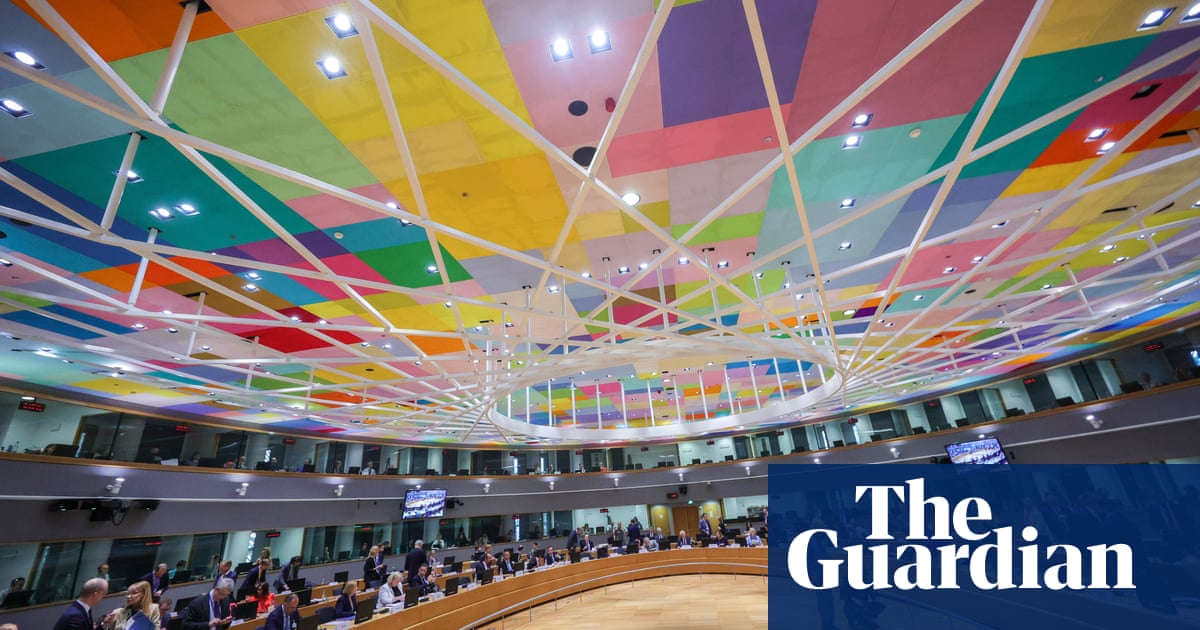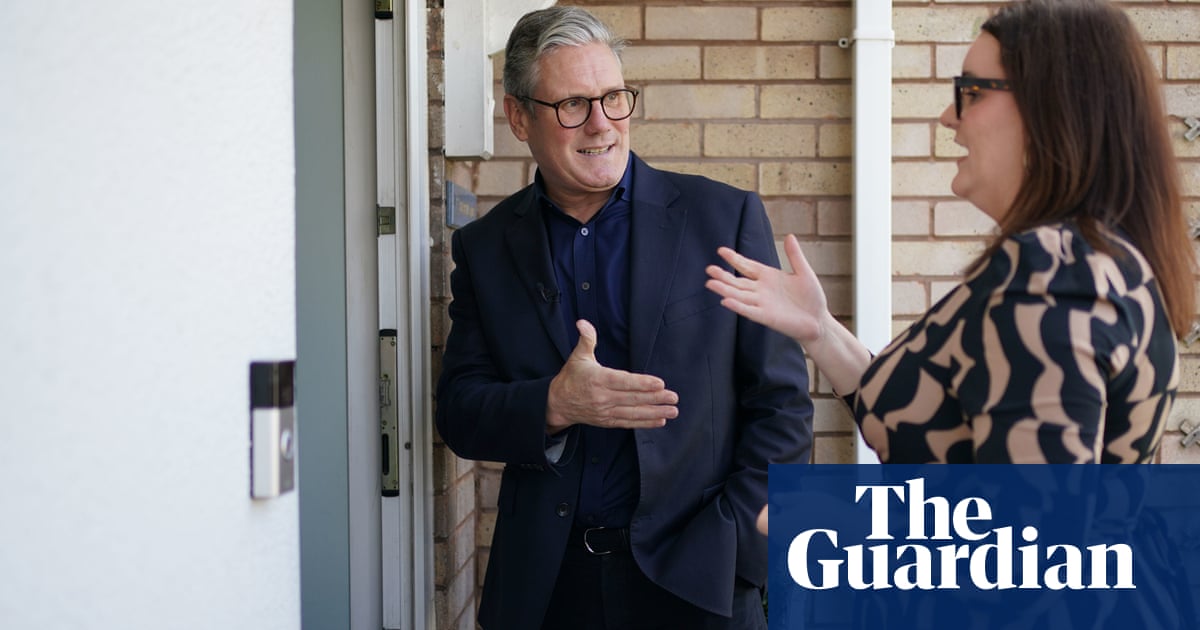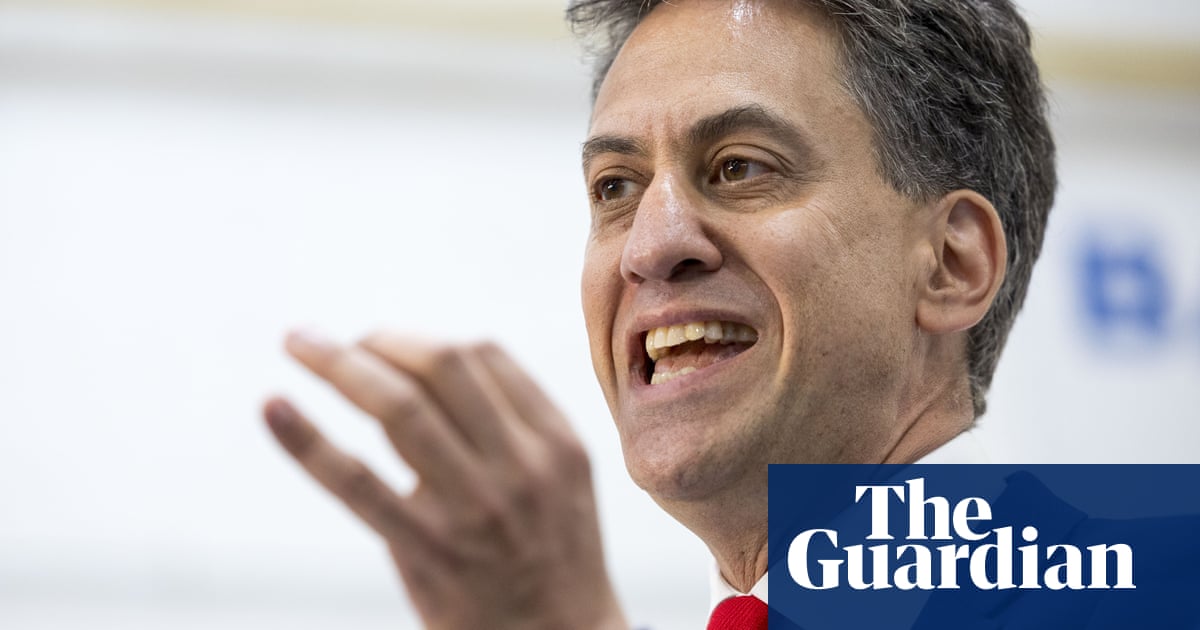
Keir Starmer is to set out his vision for Brexit, promising to remove a series of trade and travel barriers while insisting that the debate on any UK return to the single market or customs union is definitively closed.
In a speech on Monday evening, the Labour leader will argue that the big questions over EU membership are “in the past”, completing his own policy journey on the subject, having previously pushed for a second referendum and then the return of free movement.
The speech to the Centre for European Reform thinktank will argue that revisiting any Brexit fundamentals would simply cause new division, but that a series of smaller changes could be made, notably to ease trade between Northern Ireland and the rest of the UK.
While the SNP said the plan meant Labour was now a party of “hard Brexit”, the Liberal Democrats said there was a need for a pragmatic approach to the subject, while pro-Europe Labour MPs praised Starmer’s approach.
In a further sign of the party’s new willingness to engage on a subject it has largely avoided under Starmer, the leader will set out a plan to try to reduce red tape over trade, professional qualifications and other issues, while ruling out any attempt to return to the single market or customs union.
“In 2016 the British people voted for change. The very narrow question that was on the ballot paper – leaving or remaining in the EU – is now in the past,” he is due to say, according to extracts released in advance by Labour. “But the hope that underpinned that vote, the desire for a better, fairer, more equitable future for our country, is no closer to being delivered.”
To argue about whether the UK should rejoin the EU would be to “look back over our shoulder” and would jeopardise public faith in politics, Starmer is to say. “So let me be very clear: with Labour, Britain will not go back into the EU. We will not be joining the single market. We will not be joining a customs union.”
Detailing a plan first outlined by David Lammy, the shadow foreign secretary, Starmer said a key priority would be to improve trade between Northern Ireland and the rest of the UK, with a new veterinary agreement for agri-product trade, and a system for low-risk goods to enter Northern Ireland without checks.
Other proposals include a scheme for the mutual recognition of professional qualifications with the EU and a new policing and security arrangement with Brussels.
While stressing Labour did not want a return to freedom of movement, the plan also includes “flexible labour mobility arrangements” for people making short-term business trips between the UK and EU, and for musicians and artists embarking on tours.
In 2020 while campaigning to be Labour leader, Starmer called for the return of free movement, but a year later he reversed his position.
Ben Bradshaw, the Exeter MP and former minister and a leading pro-EU voice in the Labour party, said Starmer’s approach was “absolutely right”.
He said: “There is no prospect of us rejoining the EU, single market or customs union any time soon, not least because [Boris] Johnson has so completely destroyed trust with our European neighbours that any such move would be on far worse terms than those we had before we left.
“There is, however, plenty that we can do to reduce the enormous damage being done to our economy and our relationship with our allies, by fixing the many problems with Johnson’s botched Brexit deal.”
Sarah Olney, the Lib Dems’ trade spokesperson, said Johnson’s deal, which Labour voted for, had done significant damage, and there was a need for “a pragmatic approach that works for the UK”.
Ian Blackford, the SNP’s Westminster leader, said: “Keir Starmer has strengthened the case for independence by embracing the Tories’ hard Brexit.”












